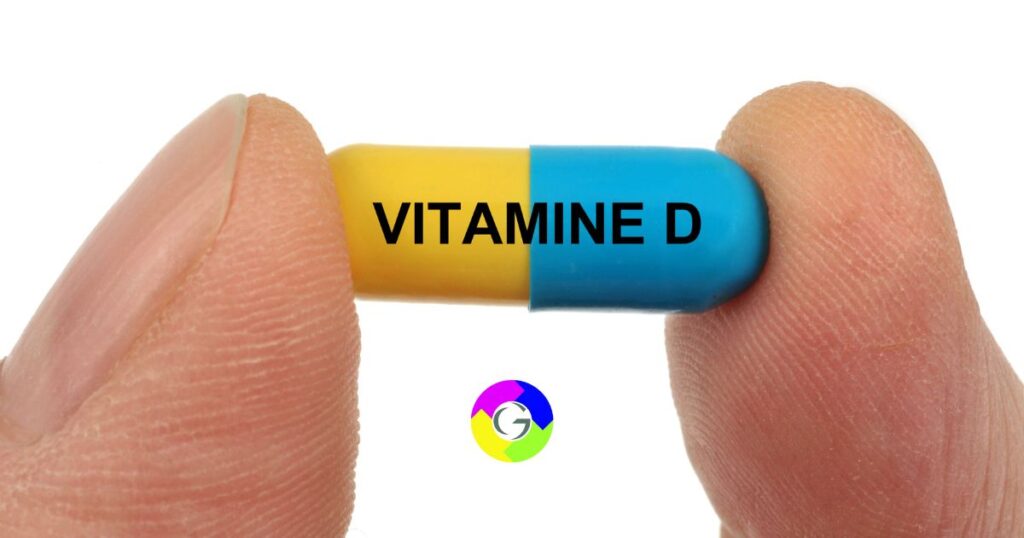Vitamin D or sunshine vitamin is naturally produced in the human body as a response to sun exposure. It offers several benefits to the human body and in opposite conditions, its deficiency brings several diseases and disorders to disturb health. Although vitamin D is produced by the human body naturally but we can boost up is level by taking supplements.
Role of Vitamin D in Body

Vitamin D performed a role in many vital functions of the body. It provides help in
- Supporting strong bones and teeth
- Promoting the health of the immune system, brain, and nervous system
- controlling insulin levels
- Aiding diabetes management
- Maintaining lung function and cardiovascular health
- Preventing the expression of genes involved in cancer development
Benefits of Vitamin D
1. Makes bones healthy
Vitamin D supports the intestine for better absorption of calcium and excretes the extra quantity of calcium through the kidneys. Vitamin D prevents several bones deformities like osteoporosis, osteomalacia. Fractured bones and rickets( softening of bones).
Vitamin d plays an important role in maintaining the calcium and phosphorus levels in the blood. These elements are important to maintain healthy bones.
2. Decrease the risk of Flu
Researchers suggest that vitamin D has protective effects from the influenza virus. Well, there is no evidence of vitamin D in the management and treatment of flu. It needs more research to confirm the effects of vitamin D on flu.
3. Makes Infants healthy
The deficiency of vitamin D in children shows a link to different types of disease so it is.
assumed that vitamin D is important for healthy infants and children.
- Low vitamin d levels can stiff the arterial wall of children
- Low vitamin D exposure can increase the risk of allergic sensitization.
- Low vitamin D levels also affect the inflammatory response of glucocorticoids.
4. Assure healthy pregnancy
Vitamin D is an important factor to maintain a healthy pregnancy. It is equally important for the mother and the developing baby inside the womb. Pregnant women with a deficiency of vitamin D have more chances of developing preeclampsia and giving birth preterm. Also, vitamin D deficiency during pregnancy increases the risk of food allergy in children during the initial 2 years of life.
5.Reduce depression
Vitamin D shows its effects in relieving the symptoms of depression and in the regulation of mood swings. Research also supports the phenomenon that the intake of vitamin D help to improve symptoms of depression.
Researchers further mention that people with depression and anxiety have mostly vitamin D deficiency in their bodies.
6. Boosts weight loss
Vitamin D in form of supplements helps people who are struggling to lose weight or prevent cardiac disease. One study shows that people who are taking calcium and vitamin D supplements can lose more weight as compared to people who do not use these supplements. Scientist reveal that addition of calcium and vitamin D supplements reduce the appetite and thus provide aid in losing weight.
7. Improve oral health
Vitamin D plays an important role in maintaining oral health as it prevents tooth decay and gum disease. As improving bone health and bone density, vitamin D shows its benefits for teeth as well. More research is going on to explore the effects of vitamin D on bone metabolism and strength for improving oral health.
8. Treat Hypertension
The current study suggests that vitamin D may play a role in the treatment of hypertension. Researchers strongly believe that there is a high correlation between vitamin D and hypertension. It is supposed that vitamin D supplementation therapy will serve as a new supportive theraphy in the treatment of hypertension.
Source Of Vitamin D

It is mostly preferred to maintain vitamin D levels in the body through diet and food. The natural food source of vitamin D includes
- milk
- cereal
- yogurt
- orange juice
- salmon
- sardines
- egg yolk
- shrimp
Summing up
Vitamin D is an essential vitamin that regulates the normal process of the body in a well-defined manner. Its importance and benefits for the body are more highlighted when we are exposed to any disease just because of vitamin D deficiency. Vitamin D can be obtained through adequate exposure to sunlight, food, and supplements. This sunshine vitamin directly or indirectly supports the different vital processes in the human body so it is, therefore, necessary to maintain normal vitamin D levels in the blood.








